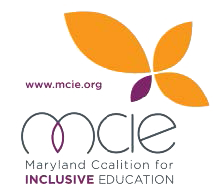xMinds events, resources and services are always FREE |
Inclusive Education Research
Partnership for Extraordinary Minds supports the idea that, when done right, inclusion benefits all students--with and without disabilities. We’ve listed below summaries and links to comprehensive research studies exploring the outcomes when disabled students are educated together with non-disabled students, including the positive impact on educators and on students without disabilities. To find a compilation of excellent resources to help schools implement and support successful inclusive education programs see our Inclusive Education Support page.
Alana Institute of Brazil and ABT Associates
A Summary of Evidence on Inclusive Education is a comprehensive report on inclusion published by the Alana Institute in Brazil, along with ABT Associates. The report reviews evidence from more than 280 research studies conducted from 25 countries. There are four main sections: Benefits of Inclusive Education for Non-Disabled Students, Benefits of Inclusive Education for Students with Disabilities, Considerations in Implementing Inclusive Education, A Coordinated National Approach to Fostering Inclusion.


Highlights from the report related to benefits of inclusion for non-disabled students (page numbers noted):
- “Drawing on research from 26 studies conducted in the United States, Australia, Canada, and Ireland, the authors found that the vast majority (81 percent) of study findings indicated that non-disabled students either experienced no effects (58 percent of studies) or experienced positive effects (23 percent of studies) on their academic development as a result of being educated alongside students with disabilities (Kalambouka, Farrell, Dyson & Kaplan, 2007).” Page 7
- “A similar review of studies by Ruijs & Peetsma (2009) also found that inclusion was generally associated with either positive or neutral effects on academic outcomes for non-disabled students. In three studies that reported positive outcomes, the researchers noted that teachers employed strategies and teaching techniques which met the needs of diverse learners (Dessemontet & Bless, 2013)”. Page 7
- “The researchers...found that having a classmate with an intellectual disability in their class had no impact on the development of mathematics or literacy skills for non-disabled students (Dessemontet & Bless, 2013).” Page 8
- “A 2008 study of 6th to 8th grade students in Chile found that non-disabled students attending inclusive schools demonstrated less prejudice, patronizing, or pitying behaviors toward students with Down syndrome when compared to students attending non-inclusive schools (Sirlopú et al., 2008).” Page 12
- “Attending class alongside a student with a disability can yield positive impacts on the social attitudes and beliefs of non-disabled students. A literature review describes five benefits of inclusion for non-disabled students: reduced fear of human differences, accompanied by increased comfort and awareness (less fear of people who look or behave differently); growth in social cognition (increased tolerance of others, more effective communication wth all peers); improvements in self-concept (increased self esteem, perceived status, and sense of belonging); development of personal moral and ethical principles (less prejudice, higher responsiveness to the needs of others); and warm and caring friendships (Staub & Peck, 1995).” Page 12
Maryland Coalition for Inclusive Education
Inclusive Education Research and Practice is a document that describes the vast body of research demonstrating the positive impact of inclusion in general education classrooms. It uses quantitative and qualitative research findings to explain the positive outcomes of inclusion on both students with and without disabilities, and describes effective tools in making inclusion work.
 Highlights from the report related to benefits of inclusion for non-disabled students (page numbers noted):
Highlights from the report related to benefits of inclusion for non-disabled students (page numbers noted):
- “[Inclusive] General education classrooms delivered more instruction, provided a comparable amount of 1:1 instruction time, addressed content more, and used nondisabled peers more and adults less (Helmstetter, Curry, Brennan, & Sampson-Saul, 1998).” Page 1
- “Concerns are often raised about the impact that students with disabilities, especially those with challenging behavior, have on the learning of typical students. Hollowood and colleagues investigated the degree to which the presence of students with severe disabilities affected the time allocated for instruction, the actual time used for instruction, and students’ engaged time. Results indicated no differences across the three domains when comparing when comparing classrooms that included students with severe disabilities and classrooms without students with severe disabilities (Hollowood, Salisbury, Rainforth, & Palombaro, 1995). The finding that engaged time for typical learners is not negatively impacted by the presence of students with severe disabilities was also replicated in other studies (Peltier, 1997; Staub & Peck, 1995.” Page 3
- “In the area of academic progress, Waldron, Cole, and Majd (2001) report that more students without disabilities made comparable or greater gains in math and reading when taught in inclusive settings versus traditional classrooms where no students with disabilities are included. This suggests that inclusive classrooms provide greater access to the general education curriculum that benefits all students.” Page 3
- “Further evidence for the positive effects of inclusion on students without disabilities is reported by McGregor and Vogelsberg (1998). They found:
-
- inclusion does not compromise general education students’ outcomes,
- typical peers benefit from involvement and relationships with students who have disabilities in inclusive settings, and
- the presence of students with disabilities in general education classrooms leads to new learning opportunities for typical students” Page 3
